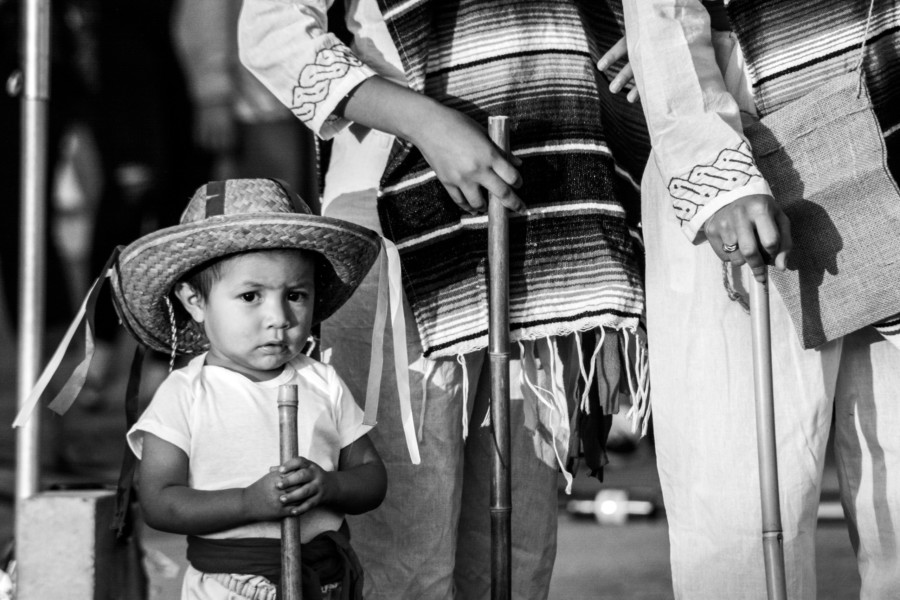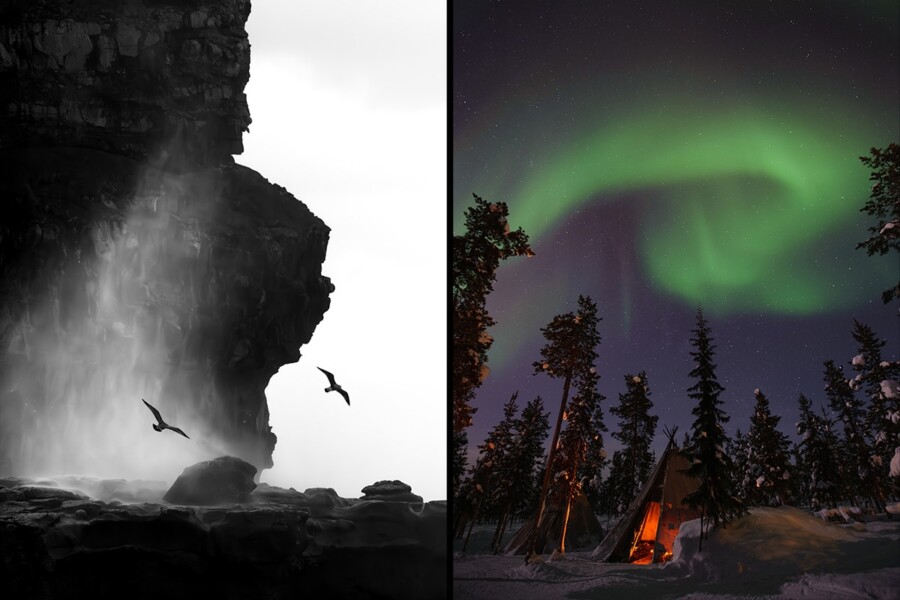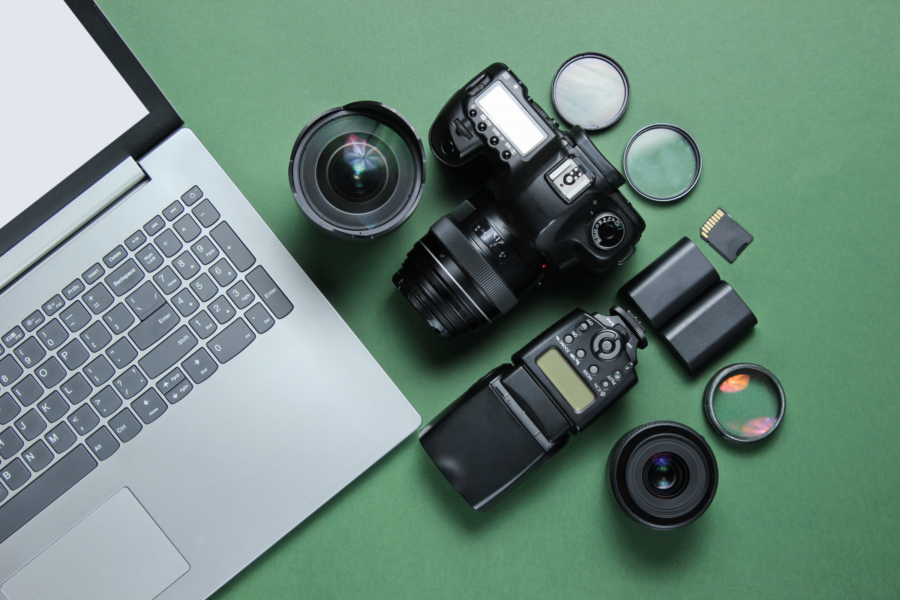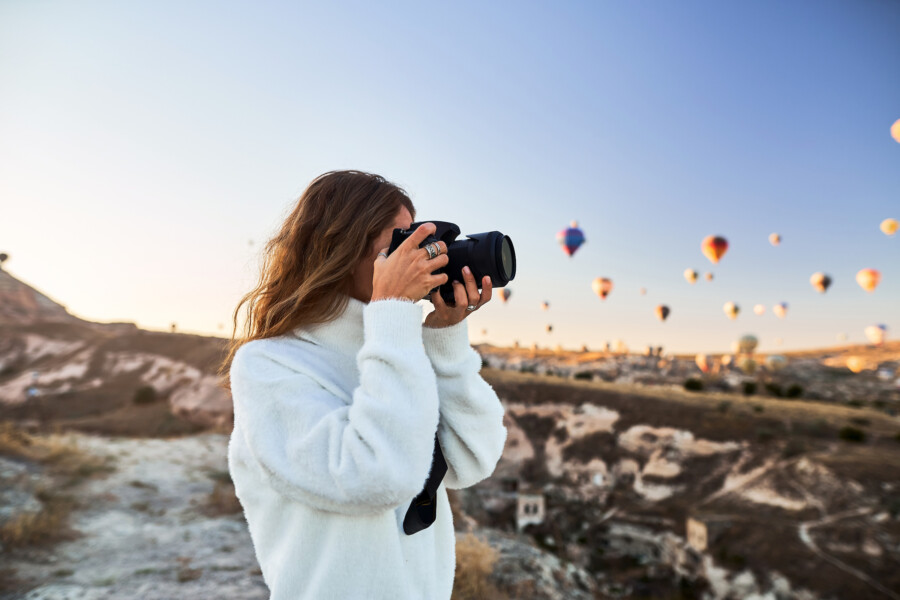Share
5 Benefits of Photography Mentorship
Even though there are tons of us out there, being a photographer can, at times, be quite lonely. In an industry where so many of us are in direct...

Even though there are tons of us out there, being a photographer can, at times, be quite lonely.
In an industry where so many of us are in direct competition, it’s hard to step back and remember that we’re all in this together. We’re all working to share important stories and offer glimpses of powerful emotion without saying a word. We all struggle, but it’s important to remember that together we can all improve and propel the industry forward. At PhotoShelter, we believe everyone can benefit from a mentor or mentee. Don’t just take our word for it though. Below, hear about how two photographers, Miriam Alarcón Avila and Daniella Zalcman, connected and learn more about how mentorship can help you.
Cover image by Miriam Alarcón Avila.
About Miriam and Daniella
Miriam Alarcón Avila is a Mexican photographer, and a visual, multimedia, and storytelling artist, based in Iowa. Her mission is to pursue her bliss by creatively producing strong works of art that leave a legacy for a better, sustainable, and inclusive world. She began making photographs as a teen inspired by her colorful Mexican culture. In 2002 she emigrated to Iowa, with the intention of studying photography, where she began working with digital media to document the work of musicians and performance artists while maintaining the goal of embracing and displaying the cultural diversity of Iowa.
In July 2017, Miriam received a grant from the Iowa Arts Council to work on the “Luchadores Immigrants in Iowa” project, a photographic documentary project to give new Iowans a voice and share their challenges as immigrants of Latino descent.
Her personal works center on highlighting the life and struggles of Latinos, immigrants, and minorities in the US. She wants to inspire, connect, encourage, educate, support, and help others experience and engage with a borderless world.
Recently, we had the pleasure of meeting Miriam after she was accepted into our first PhotoShelter Mentorship Program class and matched with her mentor, Daniella Zalcman, a Vietnamese-American documentary photographer based in New Orleans. Daniella is a multiple grantee of the Pulitzer Center on Crisis Reporting, a fellow with the International Women’s Media Foundation, a National Geographic Society grantee, and the founder of Women Photograph, a non-profit working to elevate the voices of women and nonbinary visual journalists.
Daniella’s work tends to focus on the legacies of western colonization, from the rise of homophobia in East Africa to the forced assimilation education of Indigenous children in North America. She’s a proud member of the Authority Collective and Diversify Photo, a co-founder of We, Women and Indigenous Photograph, and a member of the board of trustees of the W. Eugene Smith Memorial Fund and the board of directors of the ACOS Alliance.
Validation comes from mentor and peer support
“When I got the email saying I was matched with Daniella, I couldn’t believe it. I’d been following her for years and the fact that she picked me as her mentee meant so much to me personally. She’s a rockstar,” Miriam says. (Editor’s note: As part of the PhotoShelter Mentorship Program, mentors were given the choice of three mentees to choose from.)
“Over the years I’d applied to so many different mentorship programs and workshops. I never got anything. I really was in the process of giving up, but I said to myself ‘What’s one more?’ When I saw the email [saying I was accepted], I honestly thought it was a joke,” she told us.
“Early on, she invited me to one of her workshops and when they were talking about mentorship, she stopped to say that her mentee was here. It was so moving to me. Later, she told me that when she was looking at potential PhotoShelter mentees, she saw a few people who were talented but she didn’t connect with them like she did my work. She recognized that I am an immigrant who documents other immigrants, and she said, ‘This is someone I want to work with.’
“It was so reassuring for me because it finally felt like I wasn’t by myself. There’s this saying in Spanish, patadas de ahogado, which is like when you’re kicking but still drowning. Daniella’s mentorship helped me feel like I wasn’t drowning anymore.” Miriam also urged us to share that the mentorship program’s impact on her didn’t solely come from her mentor.
The community of other mentors and mentees in the program, plus the hand-picked guest speakers, all of those people made her feel welcome and similarly reassured. She notes that it was immediately clear to her that everyone, no matter their skill level as a photographer, wants to grow.
On the importance of representation
Daniella shared, “I had a slightly atypical path into photojournalism, in that I didn’t study photography or journalism and kind of bumbled my way into the industry. I definitely didn’t have any people I would characterize as mentors early on, while I was working as a newspaper photographer in New York for the first five or so years of my career.
I can’t imagine how comforting it would have been to have had a more experienced woman photographer I could have leaned on for advice, or someone who could have given me more insight into the very confusing world of being a freelance photographer. I think this has changed dramatically since I started working, but for a long time it felt like our industry was operating from a scarcity perspective: there’s a finite amount of work, so one photographer’s gain is another photographer’s loss when it comes to assignments, exhibitions, and so on.
Daniella Zalcman
Now, I think we’ve learned that we’re stronger and healthier as a community that shares resources and knowledge, and I think it’s critical to form close relationships with both more and less experienced photographers so that we can make sure we’re helping each other navigate this very strange field,” she says.
Community, not competition
During our conversation, Miriam also gushed about her mentorship classmates, “So many photographers don’t want to talk numbers. They see everyone as competition and don’t share details about their businesses. This experience made me feel like it wasn’t a competition. Instead, everyone deserves to have that information.” Within the mentorship community, her fellow photographers openly shared their real rates and how they determine them. “You can help other photographers by declining offers and I’d never thought of that before. Daniella really helped me understand that too,” Miriam told us.
“Previously, the industry was just run by white men. It was really separated between them and everyone else. But digital photography really democratized photography. It lets us all have access to share our point of view.”
One-on-one help and an a-ha moment
“I’d watched so many videos about putting a portfolio together but seeing Daniella do it with me just blew me away. It finally just clicked. Daniella explained why she chose one photo over another and how even with that change, you’re still telling the story. It doesn’t matter how much you watch a video, it’ll never do that for you. Daniella was amazing,” Miriam says.
The two also discussed the ever-elusive topic of money. Daniella urged Miriam to really keep in mind the business part of freelancing. “The first thing she said to me was ‘No more giving away photos for free! Your work is good and you deserve to get paid for it!’ More than anything, she gave me the reassurance that my work has real value.”
Always be curious
Throughout our conversation, Miriam was just oozing with gratitude. Another wonderful thing Daniella did was connect Miriam with other photographers. “She was very transparent and sincere when she didn’t have experience with something. She’d tell me she knows another photographer going through the same thing and would connect us.” It was through Daniella’s introduction that she met Josué Rivas, who is also an Indigenous photographer from Mexico. They had a meeting and totally hit it off because of so many shared experiences.
The networking component of the PhotoShelter Mentorship Program also provided tips and a sense of connection. “When we had Aundre Larrow come on to talk about lighting people with darker skin tones… That’s helped me so much with my project documenting Black business owners in Iowa. Every single tip has been so helpful,” Miriam says.
Be sure to download our latest free guide, Photography Mentorship: Why You Need it and Why it Helps Everyone, to learn more about mentorship and hear from other participants in the PhotoShelter Mentorship Program.


